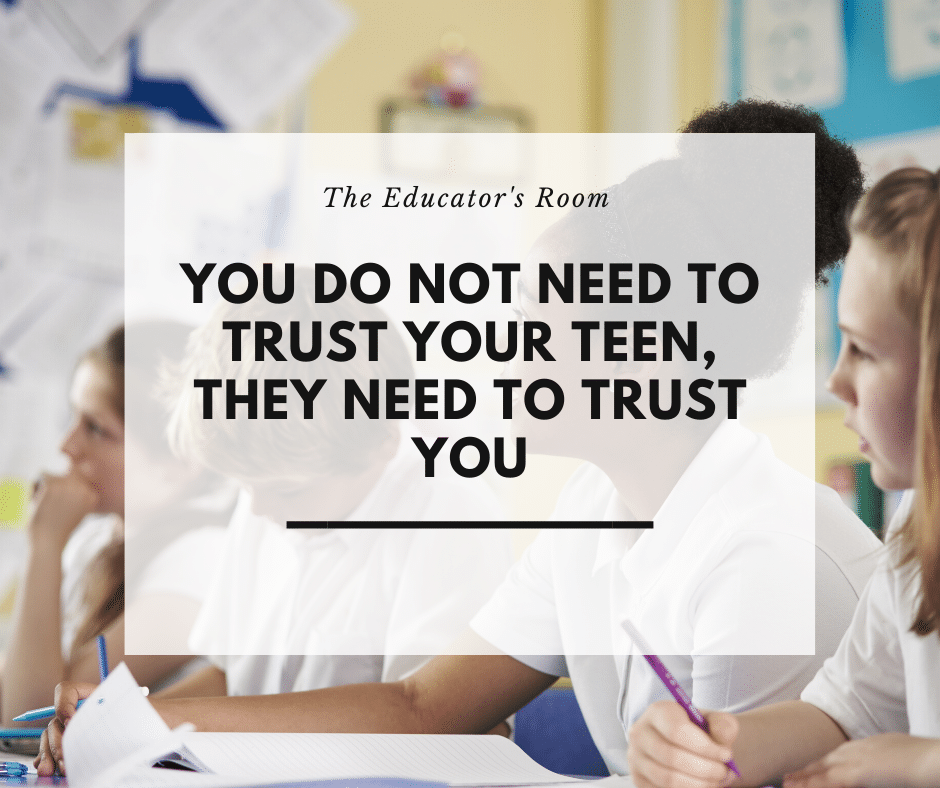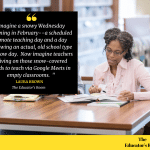Teenagers are weird and stupid. They make rash, half-cocked decisions creating consequences that bring parents to their knees. Since our oldest became a teenager two school years ago, I have prayed so frequently that my deceased, Catholic grandparents would be proud. I am not a good Christian or particularly spiritual, but being a mom of a teenager has made me religious. I have prayed while driving, cooking, and showering. Downtime brings thoughts, and thoughts lead to anxiety.
[bctt tweet=”Parenting is constant, unrelenting fear.” username=””]
Parenting is constant, unrelenting fear. Pregnant with our first child found me reading everything I could find, somehow searching for the magic recipe that would lead to “good” parenting. When our oldest was about a month- old, I had cabin fever and needed to take a walk on our 40-acre property. Placing a knit hat on her curly-haired head, I strapped her into the baby carrier, holding her bottom steady with trepidation. It was late winter in Central New York (where it is mostly winter all year-long), and the crisp fresh air was refreshing. I remember being startled as I looked down at her tiny feet. She wore only thin cotton socks. I freaked out, realizing that it was my job to keep this creature warm, safe, and most importantly, alive! I took off my gloves and used them as another layer of protection around her tiny legs and feet. The gloves looked liked ridiculous black bandages, but somehow the gesture satisfied me. I realized that I might not be the mother of the year, but I would be competent. I had hope that I would figure out this parenting gig.
Fast forward twelve years, my baby now has opinions and a grumpy attitude. Her social scene at school, filled with negative individuals who punitively remark on any misstep she takes, is increasingly brutal. Boys regularly comment on her body, either it is too fat, or it’s especially juicy. Friendships are shallow, and her academic life is unchallenging. She is stepping on her struggle bus. We are both lost in a sea of hormones, expectations, sexism, and middle school. I teach high school. I should be an expert in child development, but adolescence paralyzes me.
The teen years have made me realize that I do not have any gloves to put on her feet.
Middle school brings modified sports teams where the volleyball coach calls the girls lazy and out of shape. To a thirteen-year-old child’s brain, those words translate into anorexia. The message our daughter hears is that thinner is better and better leads to acceptance. We were underprepared for the intensity of her insecurity. Her world is mysterious to me. I have no idea what, if anything, she eats for lunch, let alone what this coach is telling impressionable seventh-grade girls.
By Thanksgiving, her collar bone is popping out, and her face is gaunt. Realizing that she is killing herself at an incredibly slow pace, we invest time with the pediatrician, a nutritionist, and a therapist. We naively believed that professionals would cure the disease, but she continued to go to a school where she was isolated, mistreated, and objectified. Her body was on display, and her peers were vocal in their criticisms of her developing body. She internalized every criticism until the harsh words defined her.
Although I have spent over twenty years as a secondary teacher, parenting made me feel the desire for professional development. I mean I have clocked over 25,000 hours with adolescents, so why was I so devastated for my child?
At this point, I don’t trust her, nor myself.
Trust is a feeling, a hopeful belief in the future. By the time she finishes eighth grade, I am bereft. The impact of her poor decisions and that of her peers will haunt her. Rearranged as a family unit, we slowly grow stronger. Our energy and focus shift to the group of four people that is our household. We shut the world out and shelter her and her sister from the storm.
I sit in therapy, attempting to process the heartbreak, shame, and fear. When I keep returning to how I don’t know my oldest anymore, how I no longer trust my daughter, the therapist says something that resonates: “You don’t need to trust her, she needs to trust you.” Wow! My mind explodes. Those words renewed my hope. I felt a sense of efficacy as a parent.
Those words became the gloves I needed to put on her feet.
My husband and I brainstormed ways we could build her trust in us. We took stock and made some changes. For instance, we invested in time at home without our phones. More importantly, we made the big decision to send our daughter to a different school district. Although the new school is financially draining, the alternative was allowing her to drown in her former environment. We realized that she could not get well in a place that made her ill.
We tried to show her consistent love and open communication. Although the challenges were immense, we kept circling our wagons around our kids.
My struggle has informed my teaching. I find myself looking at each sophomore in my classes with a new lens. I continue to ask myself: How can I build their trust? What teaching methods and policies best serve them? Which lessons, both historical and general, can I impart? How do I help them navigate this world with its lock-down drills and vape pens?
Furthermore, I engage with the parents of my students differently. I do not judge. Instead, I ask parents how I can help. I recognize the universality of raising human beings. If I am supposed to be some “expert” in adolescents but was floored by parenting, I am sure non-educator households are extremely befuddled.
So, now, as we navigate our first year as parents of a high school student, I don’t question my trust in her. She is a stupid, weird teenager. She remains a child in many ways. She does not need the burden of helping me trust her, but she does need to be able to put her faith in me. No, her development into adulthood is her focus.
I must be an adult. I will show her in a million small ways that I am the wall she can swim to, always. I will drive her where she needs to go, pick her up at inconvenient hours, attend every event, and always cheer her on.
When I look out my classroom window and see her smiling with her new friends, I realize that I am no longer holding my breath. For now, her trust in me is what I can focus on and build. That is money in the bank and a shield against the cold, harsh world. Trust in me as a teacher and as a parent is the only meaningful objective.





